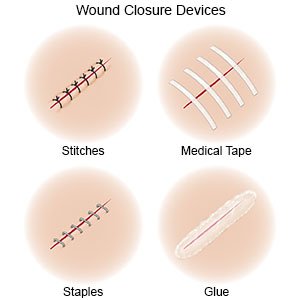Physical Assault
Medically reviewed by Drugs.com. Last updated on Aug 4, 2025.
AMBULATORY CARE:
Physical assault
is an injury or threat of injury caused by another person. It may also be called battery when the injury happens.
Call your local emergency number (911 in the US) or have someone call if:
- You have chest pain or shortness of breath.
- You have a seizure, cannot be woken, or are not responding.
Seek care immediately if:
- You have a fever.
- You have vision changes or a loss of vision.
- You have new or increasing pain or bruising.
- You feel dizzy or nauseated, or you are vomiting.
- You are confused or have memory problems.
- You feel more tired than usual, or you have changes in the amount of sleep you usually get.
- Your speech is slurred.
- You have an open wound and it is swollen, draining pus, or has a foul smell.
- You see red streaks on your skin that start at your wound.
Related medications
Call your doctor if:
- You have questions or concerns about your condition or care.
Treatment
will depend on the injuries you have. Some kinds of treatment will be given right away. Other kinds may be needed later if new health problems develop.
- Medicines may be given to treat or prevent pain or a bacterial infection.
- Wound cleaning or closure may be needed. Medical stitches, staples, tape, or glue may be used to close wounds. This depends on where the wound is on your body and how severe it is.

- A cast, brace, or split may be put on your arm or leg to protect the injured area.
Self-care:
- You may need to ask someone to stay with you a few days if you had a head injury. The person will need to watch you for signs your injury is getting worse. He or she will need to seek care for you if needed.
- Rest as needed. Ask when you can return to your normal activities. If you have a head injury or are taking narcotic pain medicine, ask when you can start driving again.
- Apply ice as directed. Ice helps reduce pain and swelling. Ice may also help prevent tissue damage. Use an ice pack, or put crushed ice in a plastic bag. Cover it with a towel. Place it on the injured area for 20 minutes every hour, or as directed. Ask your healthcare provider how many times each day to apply ice, and for how many days.
- Care for your wound as directed. Clean the wound gently with soap and water, as directed. If you have a cut or other open wound, keep it covered with a bandage. Ask your healthcare provider what kind of bandage to use. Change the bandage if it gets wet or dirty. Look for signs of infection, such as swelling, pus, or red streaks.
- Go to therapy as directed. A physical therapist can teach you exercises to help strengthen muscles and prevent more injury. A mental health therapist can help you manage stress or depression caused by the assault.
Follow up with your doctor as directed:
You may need x-rays or other tests. Your doctor may want to put a cast on a broken arm or leg. He or she may need to treat a concussion. You may also need to see a specialist.
© Copyright Merative 2025 Information is for End User's use only and may not be sold, redistributed or otherwise used for commercial purposes.
The above information is an educational aid only. It is not intended as medical advice for individual conditions or treatments. Talk to your doctor, nurse or pharmacist before following any medical regimen to see if it is safe and effective for you.
Learn more about Physical Assault
Care guides
Further information
Always consult your healthcare provider to ensure the information displayed on this page applies to your personal circumstances.
